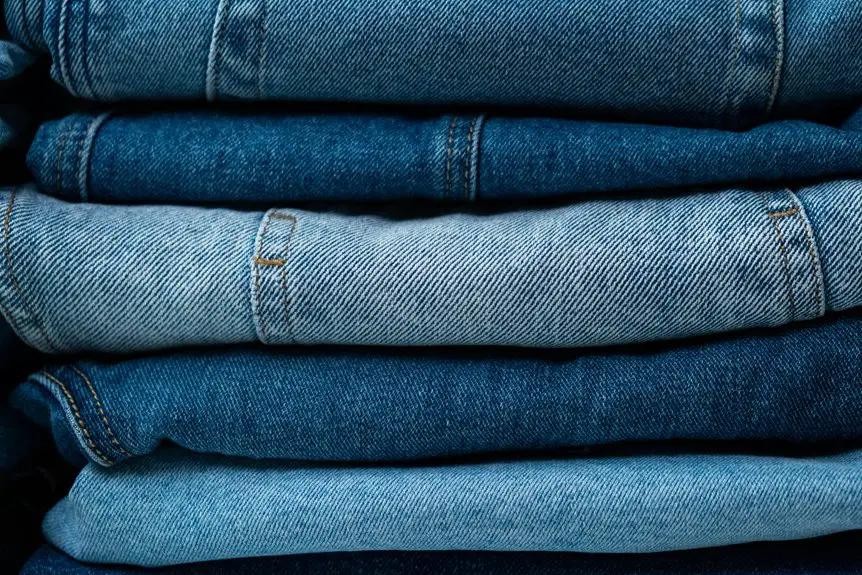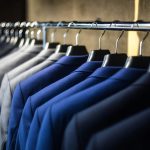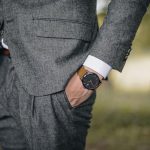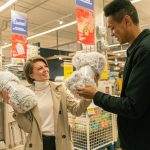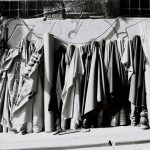If you’re looking for fabric dye services in Bangladesh, expect prices from BDT 50 to BDT 500 per yard depending on fabric type, dye complexity, and order size. Local workshops suit small batches with personalized care, while large factories handle bulk orders offering consistent quality and discounts. Choose certified services like ISO 9001 or OEKO-TEX for trusted quality and eco-friendly practices. Understanding these factors will help you select the right service and negotiate smartly as you explore your options further.
Table of Contents
Key Takeaways
- Fabric dye prices in Bangladesh range from BDT 50 to BDT 500 per yard, depending on technique, fabric type, and order size.
- Local workshops offer affordable, personalized dyeing for small orders, while large factories ensure consistent quality and bulk discounts.
- Common dyeing methods include vat, tie-dye, reactive, and pigment dyeing, each suited to different fabrics and design needs.
- Quality certifications like ISO 9001, OEKO-TEX, and GOTS guarantee safe, high-standard dyeing services.
- Eco-friendly dyeing with wastewater treatment is vital to minimize environmental impact and ensure sustainable fabric processing.
Overview of Textile Dyeing Industry in Bangladesh
Although Bangladesh is best known for its garment manufacturing, its textile dyeing industry plays an essential role in supporting this sector.
Bangladesh’s textile dyeing industry is a vital pillar supporting its renowned garment manufacturing sector.
When you explore Bangladesh’s textile dyeing landscape, you’ll find a mix of traditional and modern dyeing units spread across the country. These facilities handle everything from small-batch artisan dyeing to large-scale industrial production, ensuring fabrics get the vibrant colors needed for the global market.
You’ll notice that many dye houses focus on efficiency and compliance with environmental standards, responding to increasing global demands for sustainable practices.
By choosing local dyeing services, you not only get competitive prices but also benefit from quick turnaround times and customized solutions tailored to your fabric type and color preferences.
This industry truly forms the backbone of Bangladesh’s textile value chain.
Common Fabric Dyeing Techniques Used Locally
The variety of dyeing units across Bangladesh means you’ll encounter several fabric dyeing techniques tailored to different needs and fabric types. Whether you’re working with cotton, silk, or synthetic fibers, local artisans use methods that balance tradition and efficiency. Techniques like vat dyeing and tie-dyeing remain popular for vibrant, long-lasting colors. You can also find reactive and pigment dyeing used extensively in industrial setups for faster processing.
| Technique | Description |
|---|---|
| Vat Dyeing | Immerses fabric in dye vat for deep color |
| Tie-Dyeing | Fabric tied before dyeing for patterns |
| Reactive Dyeing | Chemical bonds with fabric, vibrant results |
| Pigment Dyeing | Uses pigments fixed with binders, versatile |
These methods guarantee you get colors that meet your specific fabric and design needs efficiently.
Factors Affecting Fabric Dye Prices in Bangladesh
When you consider fabric dye prices in Bangladesh, several key factors come into play that directly impact the cost.
First, the type of fabric you choose matters—natural fibers like cotton often require different dyes and processes than synthetic ones, affecting price.
The complexity of the dyeing technique also influences cost; intricate patterns or multiple colors typically raise the price.
Additionally, the quantity of fabric you need dyed can lead to bulk discounts or higher rates for smaller batches.
You’ll also want to factor in the quality of dyes used, as eco-friendly or premium dyes tend to cost more.
Finally, the reputation and location of the dyeing service can affect pricing, with established workshops in urban areas sometimes charging higher fees.
Average Cost Range for Different Dyeing Services
You’ll find that basic fabric dyeing services in Bangladesh come at affordable rates, perfect for small projects.
If you’re after premium dyeing options, expect higher prices reflecting quality and customization.
For bulk dyeing, the cost per unit usually drops, making it a cost-effective choice for large orders.
Basic Fabric Dyeing Costs
Understanding fabric dyeing costs helps you plan your budget effectively.
Basic fabric dyeing services in Bangladesh usually range from BDT 50 to BDT 150 per yard, depending on the fabric type and dye quality. If you’re dyeing cotton or polyester, expect lower prices compared to silk or delicate materials.
Simple solid-color dyeing is generally cheaper, while patterns or multiple colors can increase the cost slightly. Small quantities might cost more per yard due to setup fees, so ordering in bulk can save you money.
Most local dye houses offer quick turnaround times at these basic rates, making it ideal for everyday fabric needs. By knowing these cost ranges, you can avoid surprises and choose a service that fits your project and budget.
Premium Dyeing Service Pricing
Although basic fabric dyeing covers everyday needs, premium dyeing services in Bangladesh cater to those seeking higher quality and more complex designs.
When you opt for premium dyeing, expect to pay between BDT 150 to BDT 500 per yard, depending on the fabric type and technique used.
Specialized processes like tie-dye, batik, or digital printing typically fall on the higher end of this range due to the skill and equipment involved.
You’ll also find that services offering custom color matching or eco-friendly dyes may charge slightly more.
Keep in mind, premium dyeing guarantees better color fastness, intricate patterns, and superior finish, making it ideal if you want your fabrics to stand out or last longer.
Always request a sample or quote to confirm prices before committing.
Bulk Dyeing Price Estimates
Many businesses and individuals turn to bulk dyeing services in Bangladesh to achieve consistent color and cost savings on large fabric quantities.
If you’re considering bulk dyeing, here’s a quick price guide to help you budget effectively:
- Basic Reactive Dyeing: Typically costs between BDT 40 to BDT 80 per kilogram, ideal for cotton fabrics.
- Vat and Sulfur Dyeing: Priced around BDT 60 to BDT 100 per kilogram, suitable for heavier fabrics needing durable colors.
- Disperse Dyeing: Usually ranges from BDT 70 to BDT 120 per kilogram, perfect for polyester materials.
- Specialty Dyeing (e.g., Acid Dyeing): Can cost BDT 90 to BDT 150 per kilogram, used for silk and wool.
Choosing Between Local Dyeing Workshops and Large Factories
When deciding between local dyeing workshops and large factories, you’ll want to weigh cost differences carefully.
Local workshops often offer lower prices but may handle smaller orders with varying quality.
On the other hand, large factories provide consistent quality and higher capacity, though usually at a higher cost.
Cost Comparison Overview
Choosing between local dyeing workshops and large factories in Bangladesh depends largely on your budget and project scale. You’ll want to weigh costs carefully to make the best choice.
Here’s a quick cost comparison overview:
- Setup Fees: Local workshops often have lower or no setup fees, while factories may charge higher initial costs.
- Bulk Discounts: Large factories usually offer better rates for bulk orders, reducing your per-yard expense.
- Labor Costs: Workshops rely on manual labor, which can be cheaper but sometimes slower, affecting timelines.
- Additional Services: Factories might include services like quality control and packaging, adding value but increasing price.
Quality and Capacity Differences
Although local dyeing workshops offer personalized attention and flexibility, large factories provide greater consistency and higher production capacity.
When you choose a local workshop, you’ll benefit from hands-on service and the ability to customize small batches, perfect for unique or limited projects. However, these workshops might struggle with uniform color quality across larger orders.
On the other hand, large factories use advanced machinery and standardized processes, ensuring consistent dye quality and faster turnaround times, especially for bulk orders.
If your project demands strict color accuracy and quick delivery, a large factory is your best bet. But if you prioritize customization and direct communication, local workshops can meet your needs, albeit with some trade-offs in scale and uniformity.
Choose based on your project size and quality expectations.
Quality Standards and Certifications to Look For
Several key quality standards and certifications can help you identify reliable fabric dye services in Bangladesh.
When choosing a dyeing service, look for these to guarantee high-quality results:
- ISO 9001: This certification guarantees the facility maintains consistent quality management systems.
- OEKO-TEX Standard 100: Assures the fabrics are free from harmful substances, safeguarding your end product’s safety.
- GOTS (Global Organic Textile Standard): Important if you want organic fabric dyeing with strict environmental and social criteria.
- SA8000: Confirms the facility meets ethical labor standards, which can be important for socially responsible sourcing.
Environmental Considerations in Fabric Dyeing
When you consider fabric dyeing in Bangladesh, you should also think about its environmental impact. The dyeing process often uses large amounts of water and chemicals, which can pollute local waterways if not managed properly.
You’ll want to choose dyeing services that follow eco-friendly practices, like using low-impact dyes and treating wastewater before release. Many responsible companies now adopt sustainable methods to reduce harmful emissions and conserve resources.
Choose dyeing services that use low-impact dyes and treat wastewater to protect the environment.
By opting for these environmentally conscious services, you not only support cleaner production but also guarantee your fabrics are dyed without compromising nature.
Keep in mind that some certified dye houses emphasize green technology, which can be a sign of their commitment to minimizing environmental harm throughout the dyeing process.
Tips for Negotiating Prices and Ensuring Quality Service
Because fabric dye prices can vary widely in Bangladesh, knowing how to negotiate effectively guarantees you get the best deal without compromising quality. Here’s how to approach it:
- Research Market Rates: Understand average prices to avoid overpaying.
- Request Samples: Always ask for dyed fabric samples to assess quality before committing.
- Clarify Service Details: Confirm turnaround time, dye types, and any additional charges upfront.
- Build Relationships: Establish trust with reliable dyers; repeat business often leads to better prices.
Frequently Asked Questions
How Long Does the Fabric Dyeing Process Typically Take in Bangladesh?
You’ll find that fabric dyeing usually takes a few hours to a full day, depending on fabric type and dyeing method. Some complex processes might take longer, but most standard jobs finish within one day.
Are There Any Seasonal Price Variations for Fabric Dyeing Services?
You might think fabric dyeing prices stay steady year-round, but they don’t. You’ll notice higher costs during peak seasons like festivals, while off-peak times often bring discounts, helping you save if you plan wisely.
Can Custom Color Matching Be Guaranteed by Local Dyeing Services?
You can’t always guarantee perfect custom color matching because factors like fabric type and dye batches vary. However, many local dyeing services work hard to match colors closely and may offer sample tests before full dyeing.
What Payment Methods Are Commonly Accepted by Fabric Dyeing Workshops?
Think of payment methods as keys opening doors to vibrant fabrics. You’ll usually find cash and mobile payments like bKash accepted, letting you breeze through transactions smoothly at most local dyeing workshops without any hassle.
Do Most Dyeing Services Offer Pickup and Delivery Options?
You’ll find many dyeing services offer pickup and delivery to make things easier for you. It’s best to confirm with the specific workshop, as some might have limited areas or additional fees for this convenience.
- The Use of Nonwovens in Construction and Civil Engineering - July 11, 2025
- The Use of Nonwovens in Construction and Civil Engineering - July 11, 2025
- The Use of Nonwovens in Construction and Civil Engineering - July 11, 2025

